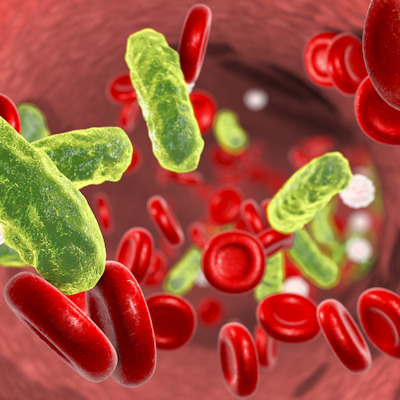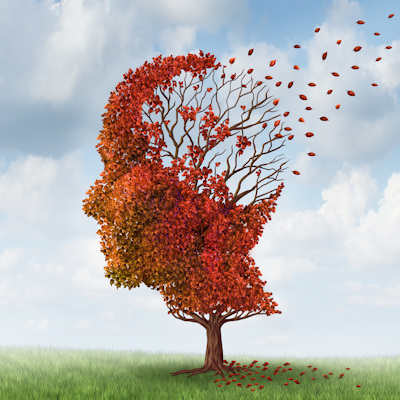 Horseshoe crab 'farming' preserves species, makes blood test possible
Horseshoe crab 'farming' preserves species, makes blood test possible
Researchers have developed a new aquaculture-based method to harvest immune cells from horseshoe crabs that preserves the crustaceans while also creating the potential for new clinical applications, like testing blood for sepsis, according to a study published in Frontiers in Marine Science on April 1. Read More
 Funding floodgates open for COVID-19 research
Funding floodgates open for COVID-19 research
The impacts of the COVID-19 pandemic are being felt around the world. Researchers are working at a record-setting pace to understand the novel coronavirus and develop and test therapies. As seen by recent funding announcements, mitigating the economic effects of this crisis is a top priority for the global community. Read More
 Extracellular RNA identifies new Alzheimer's biomarker
Extracellular RNA identifies new Alzheimer's biomarker
The association of extracellular RNA with upregulation of the phosphoglycerate dehydrogenase gene may be a useful presymptomatic biomarker for Alzheimer's disease, according to an article published in Current Biology on March 26. Read More
How AI is speeding development of COVID-19 therapies
As the world is facing a new challenge in trying to both adapt to and defend itself against the novel coronavirus, artificial intelligence (AI) is offering new hope that a cure might be developed faster than ever before. Ulrik Kristensen, PhD, from Signify Research offers a perspective. Read More
As the world is facing a new challenge in trying to both adapt to and defend itself against the novel coronavirus, artificial intelligence (AI) is offering new hope that a cure might be developed faster than ever before. Ulrik Kristensen, PhD, from Signify Research offers a perspective. Read More
Researchers bait viruses with chemically designed structures
A new therapeutic approach for suppressing seasonal influenza that involves synthetic phage shells that interfere with pathogen adhesion is immediately being tested for use on coronaviruses in response to the global COVID-19 pandemic. The research findings were published in Nature Nanotechnology on March 30. Read More
A new therapeutic approach for suppressing seasonal influenza that involves synthetic phage shells that interfere with pathogen adhesion is immediately being tested for use on coronaviruses in response to the global COVID-19 pandemic. The research findings were published in Nature Nanotechnology on March 30. Read More
Researchers reveal vulnerabilities of 'addicted' cancer cells
New findings about the mechanism by which some cancer cells can become "addicted" to glucose could lead to fresh approaches to targeted cancer therapies. The results of the research were published in Nature Cell Biology on March 30. Read More
New findings about the mechanism by which some cancer cells can become "addicted" to glucose could lead to fresh approaches to targeted cancer therapies. The results of the research were published in Nature Cell Biology on March 30. Read More
Scientists use bioinformatics to investigate origin of SARS-CoV-2
While many scientists urgently work toward developing successful therapies to fight the COVID-19 pandemic, some are looking in the opposite direction: to where SARS-CoV-2 came from. A new report published in the Journal of Proteome Research suggests that while bats are a likely natural reservoir, an intermediate host is probable. Read More
While many scientists urgently work toward developing successful therapies to fight the COVID-19 pandemic, some are looking in the opposite direction: to where SARS-CoV-2 came from. A new report published in the Journal of Proteome Research suggests that while bats are a likely natural reservoir, an intermediate host is probable. Read More
Controversy hits Gilead over orphan status for COVID-19 drug
Gilead Sciences has rescinded its request for orphan drug status for an experimental drug for treating COVID-19 just two days after getting approval from the U.S. Food and Drug Administration. The company had been hit with criticism that the approval would block other COVID-19 drugs from reaching the market. Read More
Gilead Sciences has rescinded its request for orphan drug status for an experimental drug for treating COVID-19 just two days after getting approval from the U.S. Food and Drug Administration. The company had been hit with criticism that the approval would block other COVID-19 drugs from reaching the market. Read More
Researchers explore mutations to improve drug design
Drug resistance is a common challenge when designing therapeutics for cancers or diseases originating from bacteria or viruses. Researchers explored how evolution impacted the mutation of these pathogens, and their findings could lead to the development of evolutionarily designed drugs. The results were published March 24 in Cell Reports. Read More
Drug resistance is a common challenge when designing therapeutics for cancers or diseases originating from bacteria or viruses. Researchers explored how evolution impacted the mutation of these pathogens, and their findings could lead to the development of evolutionarily designed drugs. The results were published March 24 in Cell Reports. Read More
Scientists alter cell function with genetic engineering, polymer science
A new method called genetically targeted chemical assembly (GTCA) has demonstrated the ability to build artificial structures within the body to carry out unique functions. The research, presented in the latest edition of Science, provides compelling evidence for GTCA's ability to modify cell function with bioengineering tools. Read More
A new method called genetically targeted chemical assembly (GTCA) has demonstrated the ability to build artificial structures within the body to carry out unique functions. The research, presented in the latest edition of Science, provides compelling evidence for GTCA's ability to modify cell function with bioengineering tools. Read More
Member Rewards
Earn points for contributing to market research. Redeem your points for merchandise, travel, or even to help your favorite charity.
Research Topics
Interact with an engaged, global community of your peers who come together to discuss their work and opportunities.
Connect
Tweets by @ScienceBoard



